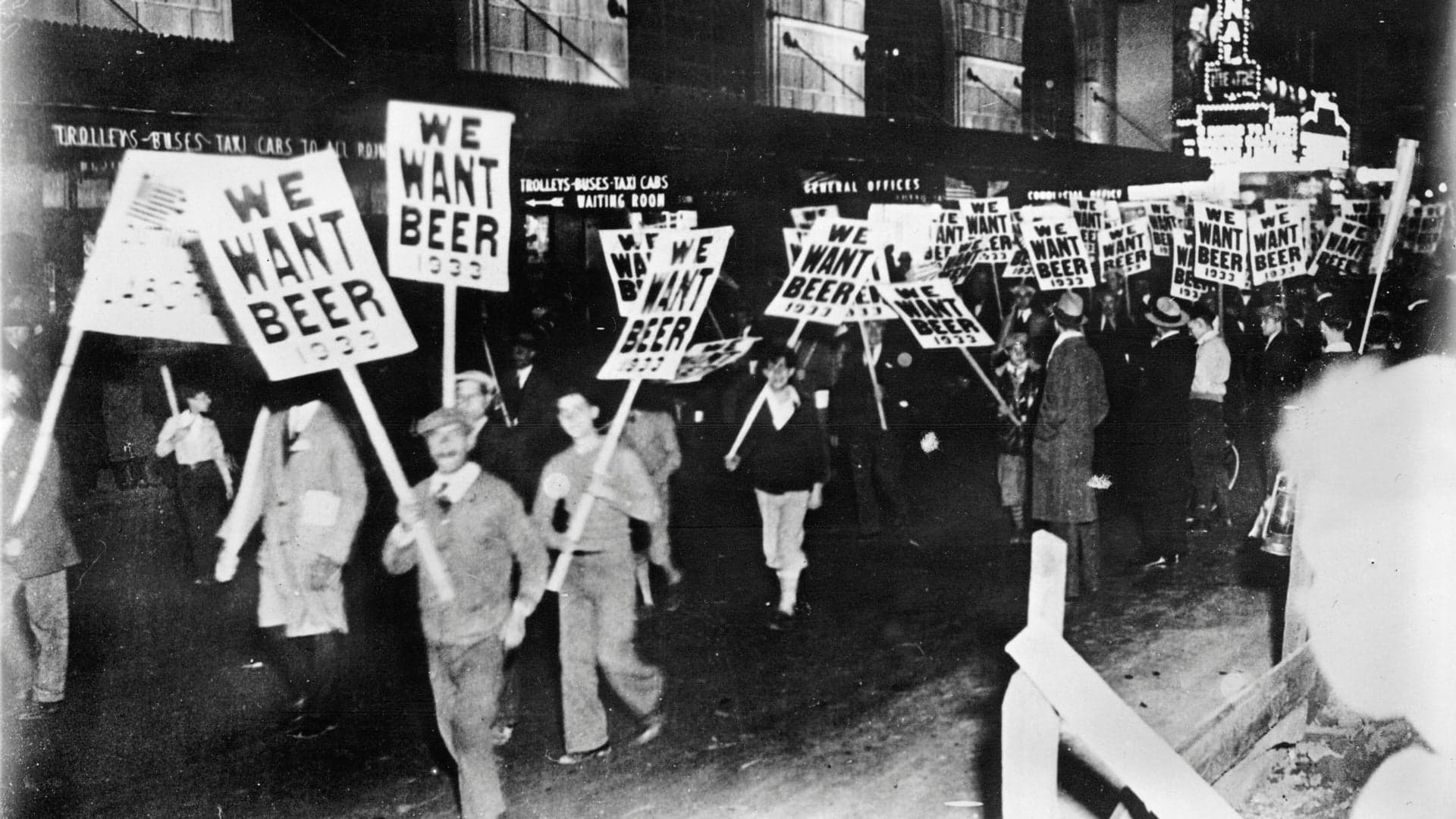The 18th Amendment to the U.S. Constitution, prohibiting the “manufacture, sale, or transportation of intoxicating liquors for beverage purposes,” is ratified by the requisite number of states on January 16, 1919.
The movement for the prohibition of alcohol began in the early 19th century, when Americans concerned about the adverse effects of drinking began forming temperance societies. By the late 19th century, these groups had become a powerful political force, campaigning on the state level and calling for total national abstinence. In December 1917, the 18th Amendment, also known as the Prohibition Amendment, was passed by Congress and sent to the states for ratification.
Nine months after Prohibition's ratification, Congress passed the Volstead Act, or National Prohibition Act, over President Woodrow Wilson's veto. The Volstead Act provided for the enforcement of prohibition, including the creation of a special unit of the Treasury Department. One year and a day after its ratification, prohibition went into effect—on January 17, 1920—and the nation became officially dry.
Despite a vigorous effort by law-enforcement agencies, the Volstead Act failed to prevent the large-scale distribution of alcoholic beverages, and organized crime flourished in America. In 1933, the 21st Amendment to the Constitution was passed and ratified, repealing prohibition.
READ MORE: The Night Prohibition Ended

